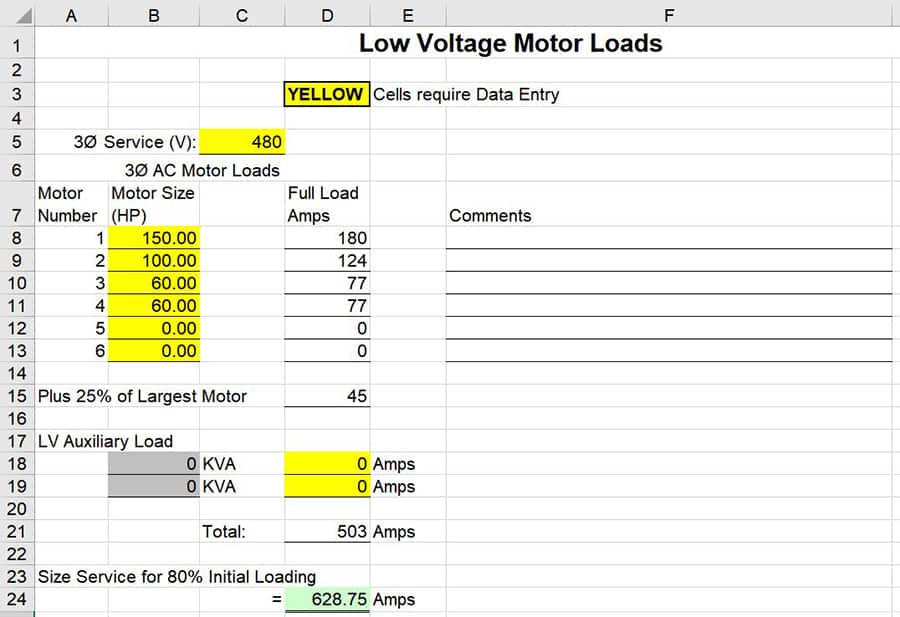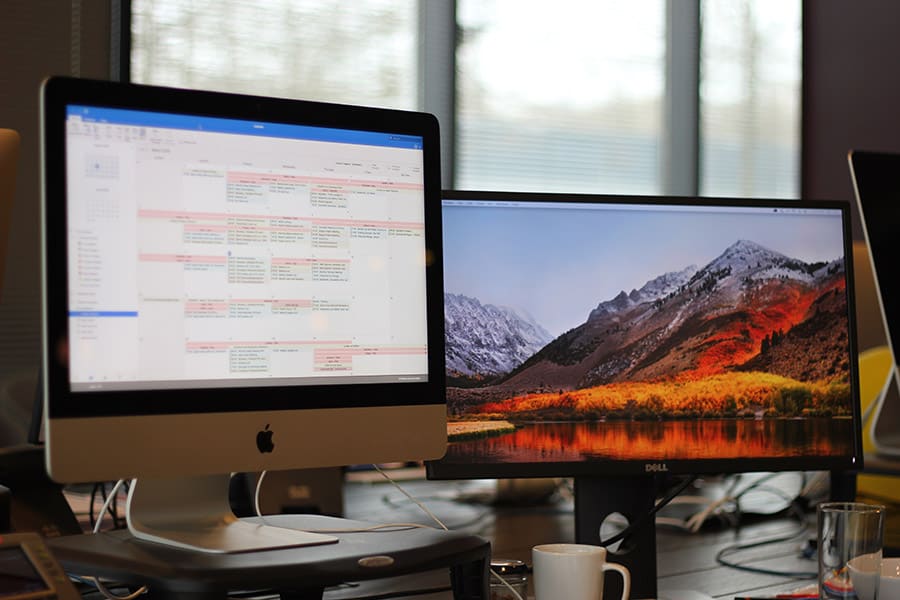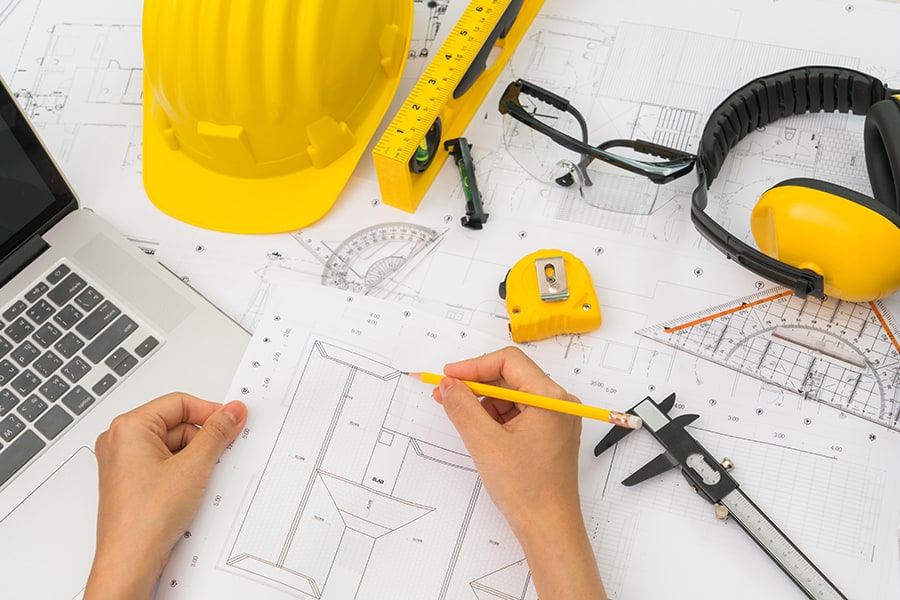There’s a collection of 21 must-have useful tools for engineers to optimize their work and boost their success.
As a working engineer, I use each of them myself.
#1 Camera
In today’s world, our smartphones are like magical wands, packing some seriously powerful cameras. So, use them to snap jaw-dropping field photos and videos to:
- Fine-tune designs with real-world details
- Keep a visual record to tackle future issues and false claims
- Troubleshoot problems
Take this one time, for example. Someone tried to pull a fast one on me, saying I never showed up at a site to hash out an issue. Thanks to a photo I took, they couldn’t wiggle out of it. And look at NASA – they mount cameras everywhere to capture launches, helping them solve issues and optimize rockets!
#2 Microsoft Excel

I’m a massive Excel fan – I even wrote an article about why it’s awesome for engineers. Some ways I use Excel:
- Manage, organize, and analyze project data
- Write programs for automated problem-solving
- Handle project budgets and schedules
Learn as much as you can about Excel – you’ll use it loads!
#3 LED flashlight
Get yourself a reliable, durable, and high-powered rechargeable flashlight. Smaller is better, as long as it’s still powerful.
I often find myself in dark corners for inspections, and a compact, powerful flashlight is a lifesaver.
#4 A second monitor

One monitor just isn’t enough for peak productivity. You need 2 or 3 widescreen monitors. I keep CAD software, product specifications, and design parameters open on my dual 32-inch monitors while I design.
Multitasking? Multiple monitors are crucial for efficiency.
#5 Architectural scale ruler
An architectural scale ruler is always within reach on my desk. It’s a lifesaver for quickly dimensioning drawing elements when design drawings come in various sizes.
Plus, clear rulers come in handy when designing by hand.
#6 Smartphone
If you’re an engineer without a smartphone, go grab one now! I use mine for:
- Photos and videos
- Photogrammetry
- GPS logs
- Engineering apps
- Notes
- Compass
- Emails
- Research
#7 USB drive
A USB drive is essential, whether in the office or the field. I’ve often had vendors and customers ask for one to transfer data quickly. I carry a SanDisk 128GB USB drive – it’s got plenty of space.
#8 A reliable pencil and eraser
There’s nothing more essential than a good ol’ pencil and eraser duo. Just try hitting up a project site without one, and you’ll quickly realize how indispensable they are. Even with a smartphone, you can’t beat the ease of sketching diagrams on the fly.
And let’s not forget the sheer versatility of a pencil. Jotting down notes on reports, business cards, spreadsheets – you name it, a pencil’s got your back.
#9 Calculator
You can’t go wrong with a sturdy, no-nonsense calculator. No need for anything too flashy like a graphing calculator, just something that can handle the basics:
- Trigonometry
- Square roots
- Exponents
- Logs
Make sure your calculator’s screen displays your equations, so you can catch any pesky input mistakes. And don’t forget the all-important delete function – you’ll want to erase inputs without wiping out the whole calculation. Efficiency is key!
I swear by my Texas Instruments TI30XIIS scientific calculator. Affordable, tough, and never lets me down.
#10 Stapler
I get a ton of use out of my trusty office stapler, but I also pack a mini stapler in my field bag. Clients, customers, and fellow engineers always seem to hand me loose papers.
The quickest way to tame those unruly sheets? Staple ’em together, of course!
#11 Dual-head screwdriver
When I’m out in the field, I keep a nifty little screwdriver with both a flat and a Phillips head on hand.
It’s super helpful when I need to open panels or tinker with equipment. Trust me, it’s better to have it and not need it than the other way around.
#12 Waterproof folder/clipboard
You never know when you’ll get caught in a downpour, so a waterproof folder is a must. I’ve seen too many engineers frantically trying to shield their papers with their jackets – spoiler alert, it never works.
A solid clipboard also gives you a sturdy surface to write on, not to mention a handy spot to stash your pencils, erasers, ruler, and more.
#13 Rugged waterproof bag
There are only so many pockets in your pants and jacket for your gear.
Invest in a rugged, waterproof bag with sturdy handles to carry all your essentials. Because the field can be a wild and unforgiving place. A heavy-duty waterproof backpack works wonders, too.
#14 Safety glasses/goggles
I always pack a pair of safety glasses to shield my eyes from flying debris in factories.
Make sure they fit snugly and don’t slide off your face when you look down – it’s not only irritating but defeats the whole purpose.
#15 Tape measure
My trusty 25-foot tape measure goes everywhere with me. Measuring equipment and clearances in the field is a breeze, and every inch counts when it comes to design work.
Remember the golden rule: measure twice, cut once – if cutting’s your thing, that is.
#16 Hard hat and steel-toe shoes

Okay, so it’s not exactly a tool, but proper gear is crucial when you’re on construction sites and in factories.
You definitely don’t want something falling on your sneaker-clad foot or, heaven forbid, your unprotected head.
#17 Earplugs
Don’t underestimate the power of earplugs. I know too many folks with dodgy hearing from ignoring loud noises in factories.
Visiting a hydroelectric plant? Pop in those earplugs. Protect those ears just like you would your eyes.
#18 Analog and digital calipers
You know how sometimes those tiny gaps seem huge until you attempt to squeeze something in? That’s when calipers swoop in to save the day, allowing you to measure small clearances with precision.
#19 Tape
I always stash both electrical and Scotch tape in my go-to bag. You never know when you’ll need to MacGyver things back together!
I’ve faced moments when, out of the blue, something I was carrying just fell apart. A quick grab for my tape, and voilà – problem solved!
#20 Hand sanitizer
Whenever I go into the field or a factory, my hands inevitably end up grimy. Most of the time, there’s no running water or soap in sight to wash up.
That’s where hand sanitizer comes in, keeping my hands and tools spick and span.
#21 Gloves
The gloves you carry will depend on the work you do. For me, heavy-duty gloves are my trusty sidekicks. They shield my hands when handling sharp objects and lend a helping hand when lifting hefty items.
Conclusion
The engineering world is huge, so the unique tools you’ll use will vary. But the ones I’ve shared here are the bread and butter that can benefit every engineer.
But hey, don’t just take my word for it. It’s always good to hit up your experienced colleagues and get their two cents on what tools they recommend. This way, you’ll have everything you need to become a pro in your line of work. And who knows, as you gain more experience, you might just stumble upon a game-changing tool that takes your work to the next level.
What do you think are the most useful tools for engineers? What other useful tools for engineers would you recommend?
